When Jordyn Wieber showed up at UCLA her freshman year in 2013, she approached then-head gymnastics coach Valorie Kondos Field about a role with the six-time national championship program.
“Miss Val,” as she’s known, had recruited her years before, but Jordyn was on a pro path at the time.
“You can be team manager,” Miss Val told her.
“What does a team manager do?”
“Team managers move the mats, chalk the bars, do laundry, all the grunt work, basically.”
Jordyn was in. It was a chance to stay involved in her lifelong sport while attending her dream school, even if it meant fielding the same question over and over again from people who attended the meets: What is an Olympic gold medalist doing moving mats? As if it were beneath her.
“I didn’t care. I cared about the success of the team, and I wanted to contribute in some way.”
She ended up gaining some things, too. Front-row seats in meetings and practices. A bird’s-eye view of a vaunted collegiate gymnastics program. And little by little, healing.
Jordyn grew up the third of four kids in DeWitt, Michigan, population about 4,800. Outside the family’s home, the town newspaper covered youth athletes’ feats, state lawmakers debated policy just down the road in Lansing, and Michigan State University bubbled with Big 10 energy.
Inside the Wieber home, a 6-year-old Jordyn endlessly practiced back walkovers and handsprings on the mat her parents bought for her. The mat’s lines served as her balance beam, where she’d perfect her precision and control. And the couch?
“I vaulted onto or over the couch in the living room all the time,” she says. “I was always doing handstands in the living room and couldn’t get enough gymnastics.”
Her parents put her in gymnastics when she was 2 or 3 in part because she had natural biceps and quads, “freakish muscles for a toddler,” and just looked like a gymnast. She pretty much took to it instantly.
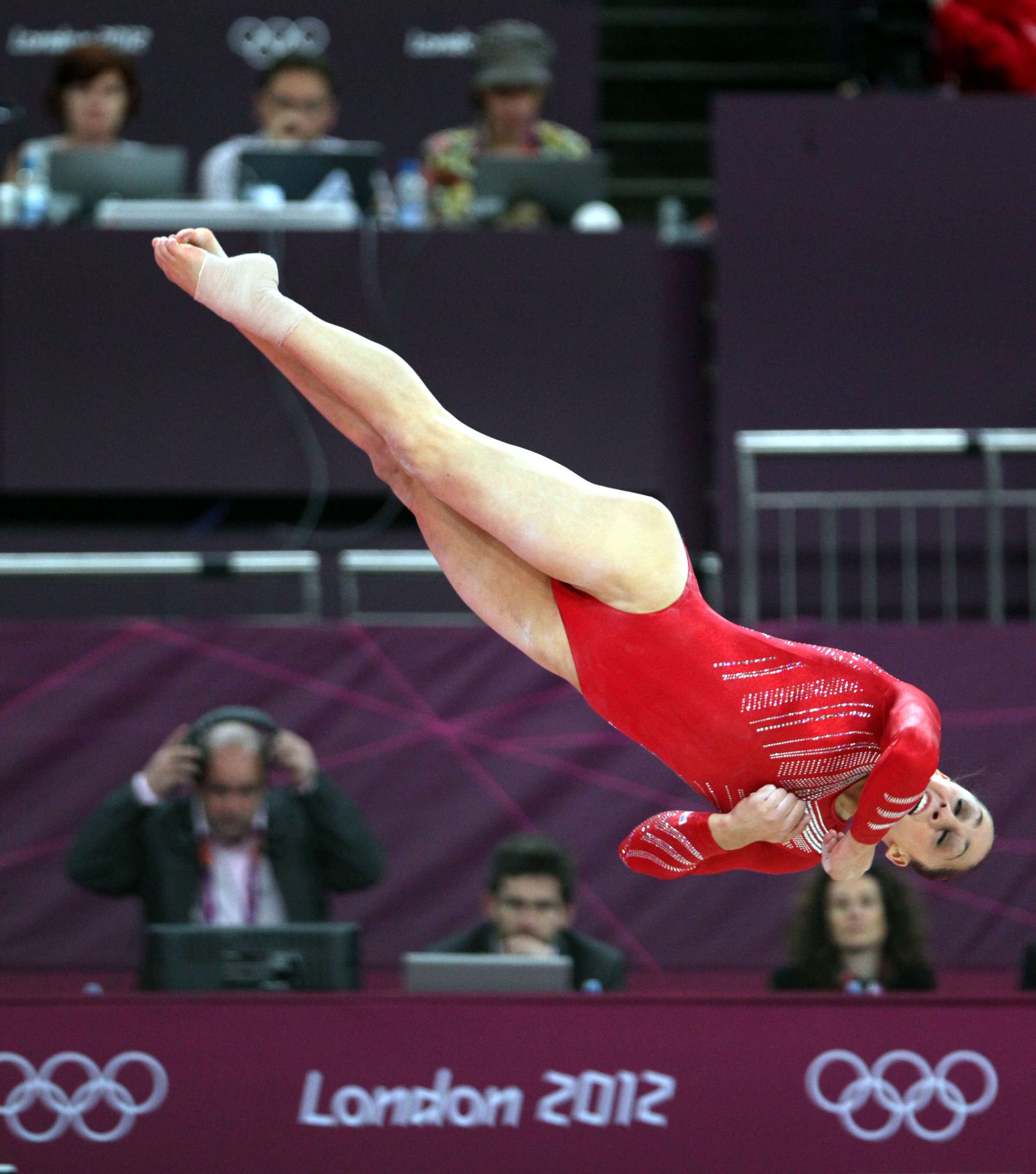
It started out as recreational, but at age 7, once she started competing, it took on a whole new level of intensity that suited her. Jordyn relished the reward of hard work.
“I think I got a taste of, if I work really hard and perform well, I win. I loved performing and being in the spotlight and showing off everything I worked hard for. The sense of achievement and accomplishment I got, I really fed off of that, and that’s how my career started rolling from there — achieve one goal and go on to the next one.”
It was around this time that an elbow injury landed her in the care of Larry Nassar, then an assistant professor at Michigan State and the national team doctor for USA Gymnastics.
He lived in Lansing, which, at the time struck the Wiebers as a great privilege.
“It created this dynamic, especially in Michigan, where we felt lucky and honored to have access to this doctor. He came to our gym every Monday night, treated us, and looked at any injuries anyone had. His office was very close to gymnastics and home for me, so starting from the first injury I had when I was 8, I began seeing Larry and being treated by him.”
Jordyn made the U.S. national team in 2006 when she was 11 years old and won silver on the balance beam and vault at the U.S. Classic the following year.
By the time she was in junior high, she was training 30 to 35 hours a week, with a two-a-day schedule that would be hard for most anyone to stomach: wake up and practice for two hours, go to school for three, practice for another four-and-a-half, get home at 8:30 p.m.
Sundays were her days off, but not really.
“On Sunday, that’s when I’d rest and catch up on school work. Everything in my life revolved around gymnastics, and it was like that from 8 years old to 17 when I made the Olympic team.”
Her Olympic journey is well documented, as is the Nassar sexual abuse that paralleled it.
Grooming that started at age 8. Junior elite level medals and national championships. Abuse that started at age 14. Senior elite level medals and national championships. A world championship. Expectations for all-around gold in the 2012 London Games. Falling just short of qualifying. Triumphant team gold instead.
The next year, Jordyn left for UCLA. It wasn’t until stories started to come out that she and others realized Nassar’s so-called “treatments” went well beyond standard protocol for treating various injuries over the years. Athlete after athlete came forward, sharing experiences that had mirrored hers.
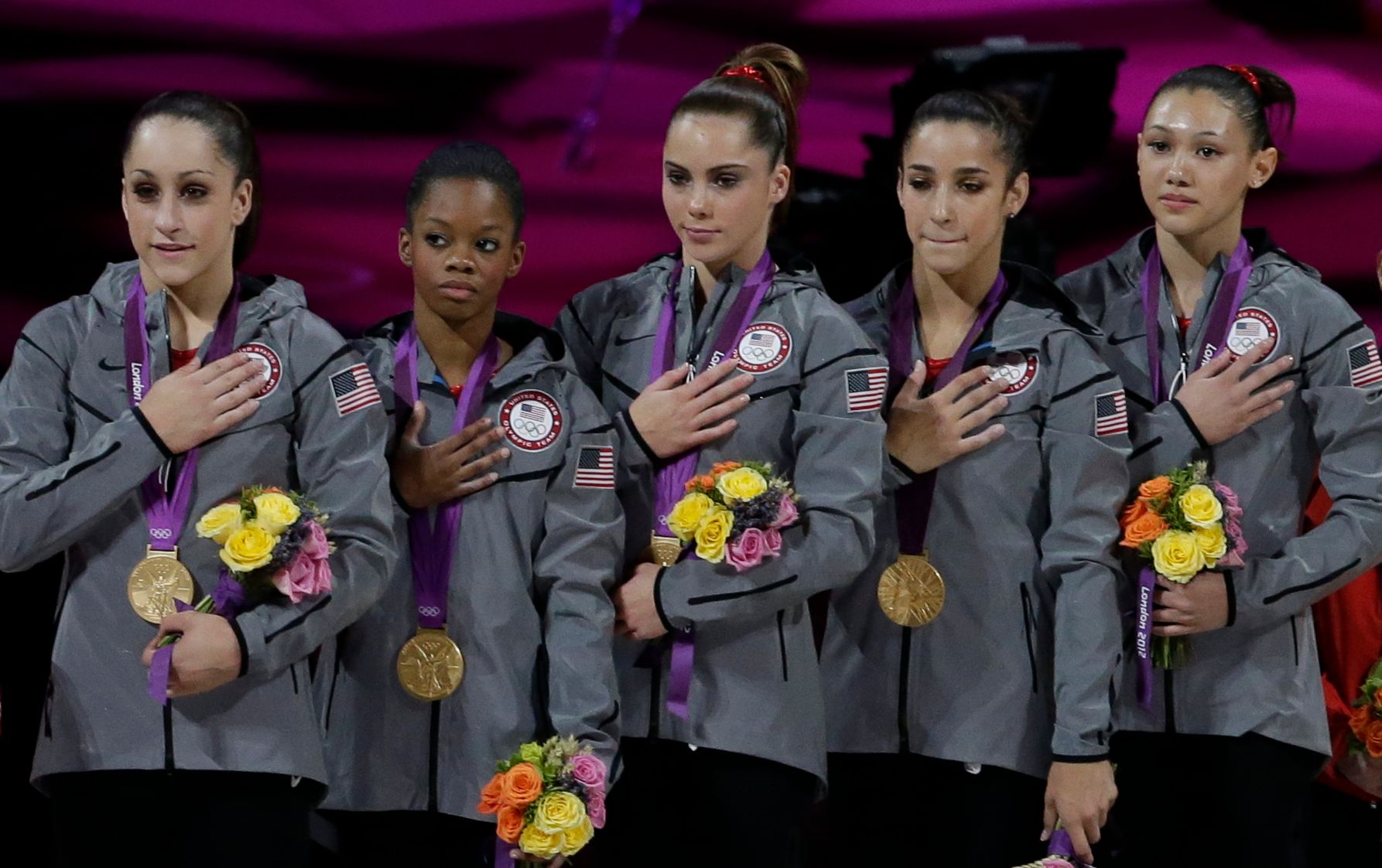
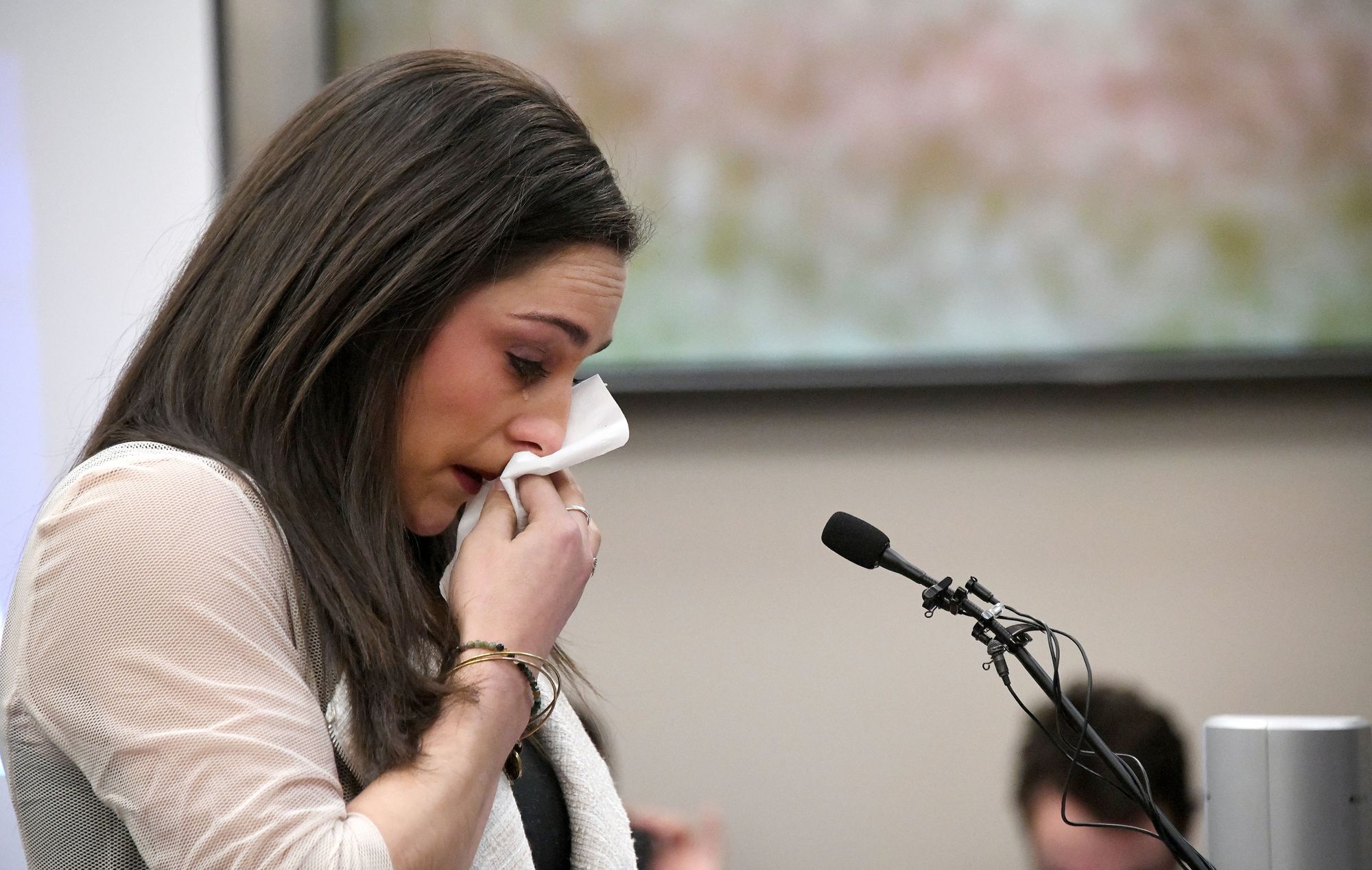
The Fierce Five earn gold (left); Wieber gives a victim statement at the sentencing of Larry Nassar. [AP photos]
She was one of 156 people to read a victim impact statement during his trial in January 2018. She hadn’t planned on going public — she initially wanted to remain a Jane Doe because she didn’t want his notoriety to be her story.
But then as she watched court proceedings online, she saw purpose and strength in those who spoke up.
“It started occurring to me that there was power in our voices, and I was realizing the more I watched, if they can do it, so can I. If I could make meaning out of this thing that happened to me, that was something that could be productive after the fact.”
Using her voice, making meaning, turning dark moments into productive ones — these are all tenets she lives by and now works to instill in student-athletes at the University of Arkansas, where she has been head gymnastics coach since 2019.
She didn’t plan on being a head collegiate coach quite so soon, but the job is a synthesis of her experiences as an elite athlete, her constant calling to contribute, and her early career interests.
Early on in college, she’d thought about going into sports psychology because she was fascinated by the power of the mind (“gymnastics is 70% mental and 30% physical”) or maybe leadership coaching (“what a cool job helping leaders be better leaders”).
Then, during her time with the Bruins, she began to think about coaching. She’d served as team manager for three years before becoming a volunteer assistant coach during her senior year (2016–17) and the two seasons that followed.
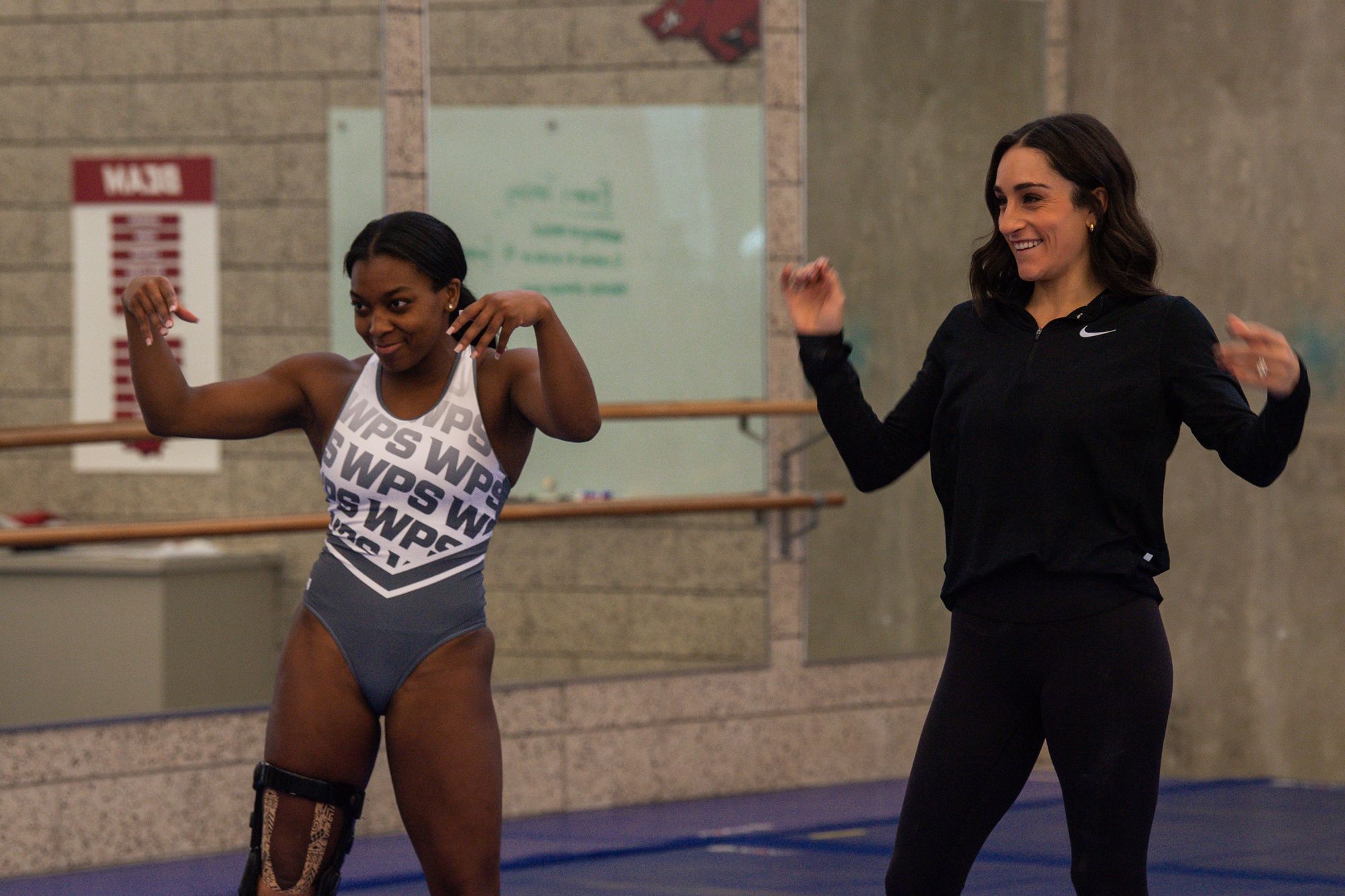
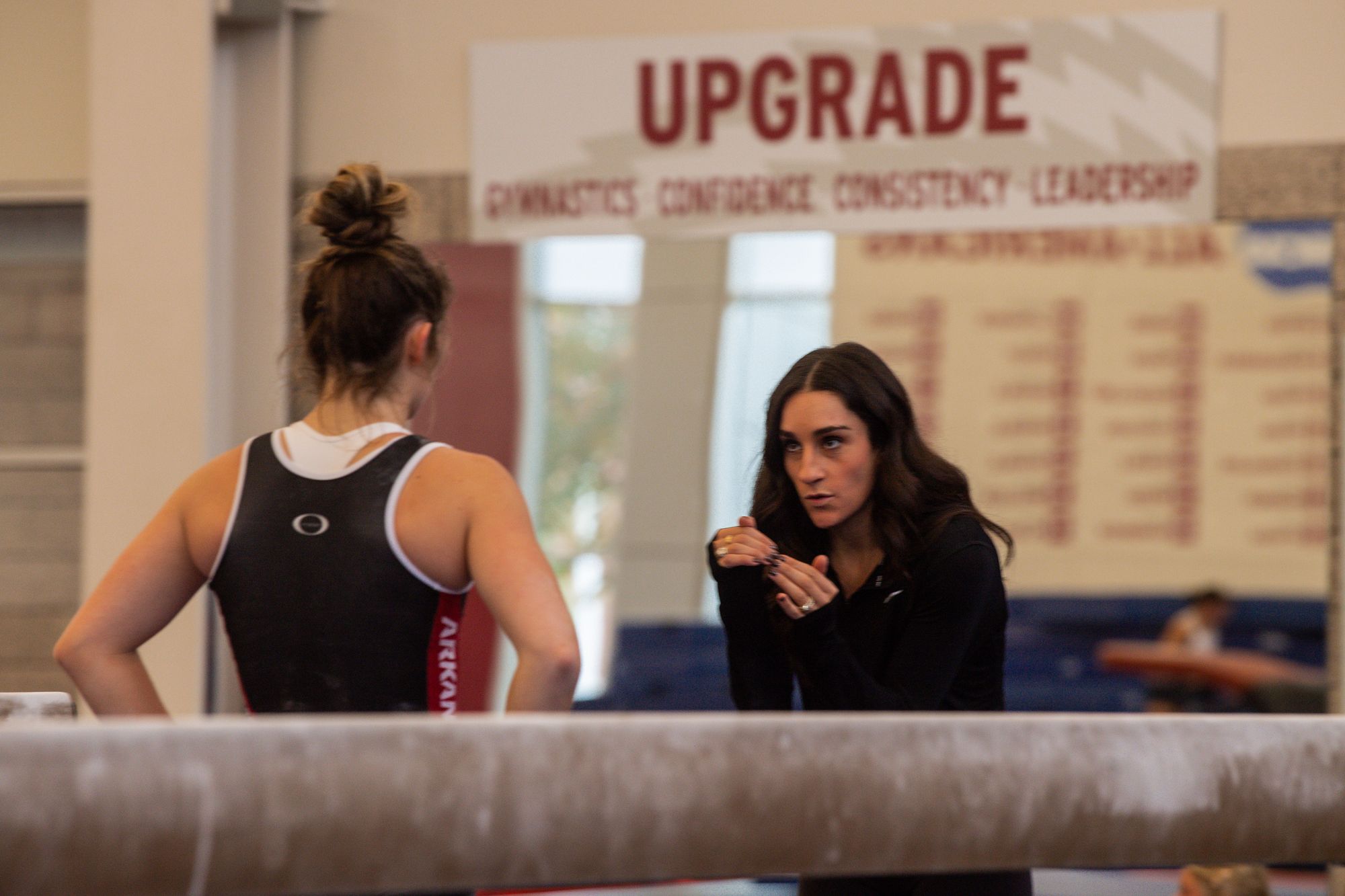
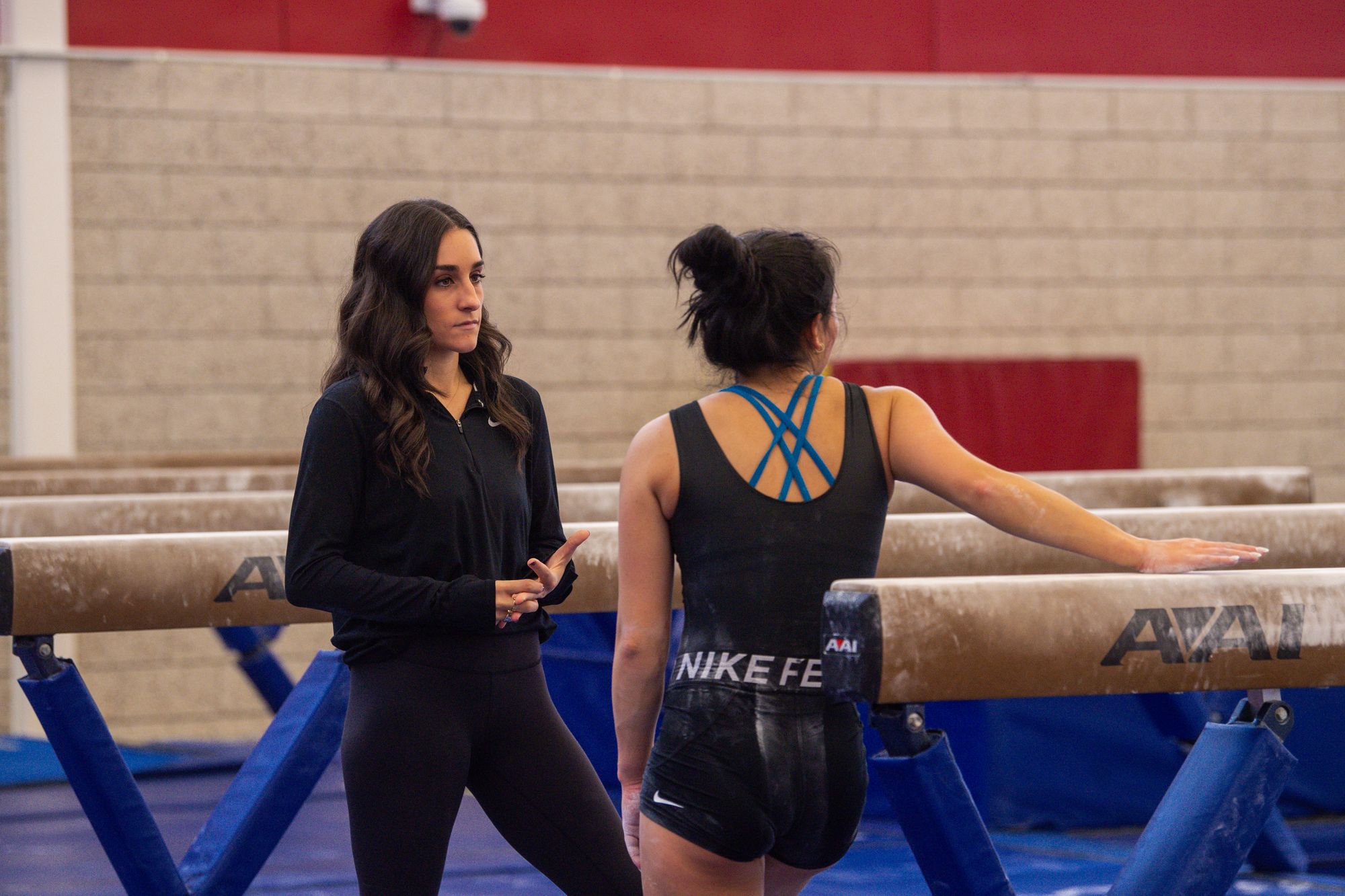
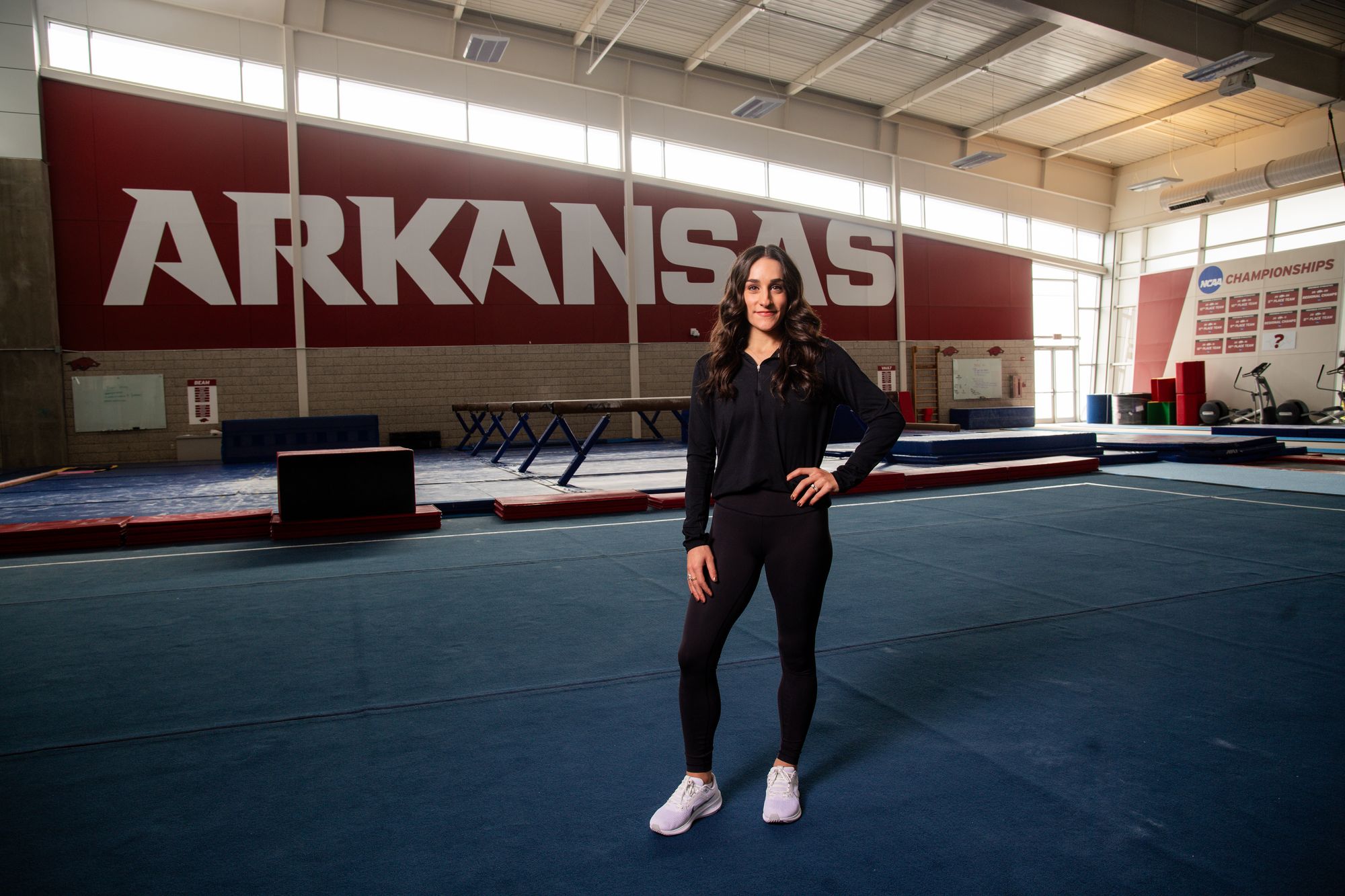
Wieber has reconnected with all the good sports can provide as head coach at the University of Arkansas. [Meredith Mashburn photos]
Both roles allowed her to learn the intricacies of running a program, coaching young women, and healing herself.
“I felt so supported, and I felt like a lot of my healing came from being able to experience a version of the sport that was really healthy.”
When the Razorbacks’ athletic director texted Jordyn about the head coaching position in 2019, she was a little nervous. Just 23 at the time, she wasn’t that much older than some of the athletes she’d be coaching. But she’d soared and crashed through just about every physical, mental and emotional aspect of her sport, and those experiences could be of value to athletes of any age.
Miss Val reassured her and gave her a push: “No head coach knows what they’re doing all the time. You’re confident. I’ll support you. I know you’ll be able to figure it out.”
When she walked into her office the first day, she looked around and thought, “I kinda know what I’m doing, but I kinda don’t.” The job entails not only coaching and recruiting but also marketing, promotions for meets, planning, scheduling, and managing other administrative details.
When it was time to meet the student-athletes, all of whom had been recruited by her predecessor and program founder Mark Cook, she likened it to adopting 16 kids that she didn’t know before.
It was important to earn trust, acknowledge that she might do things differently than Cook and his staff, and build a culture that values each person as a human first, athlete second.
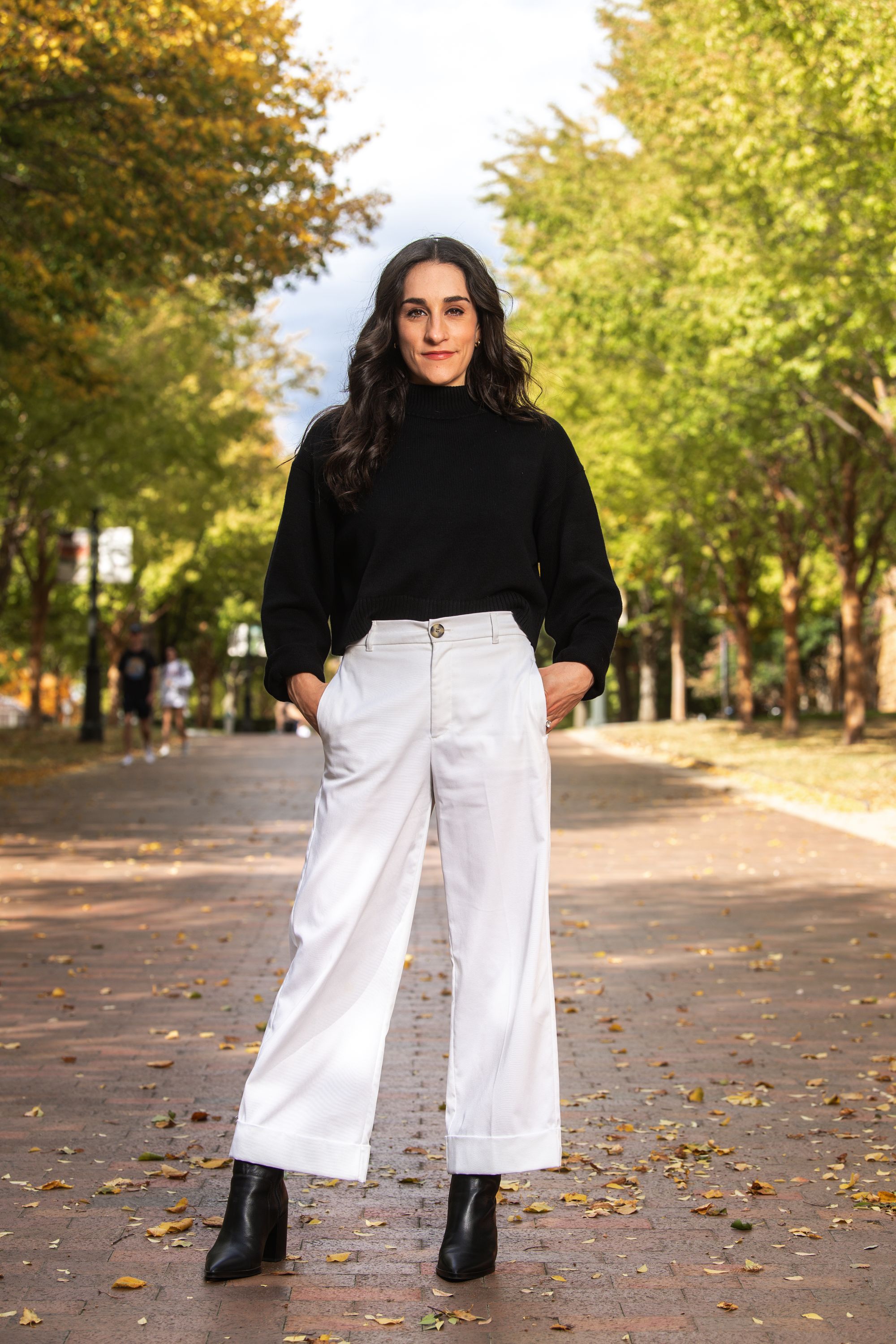
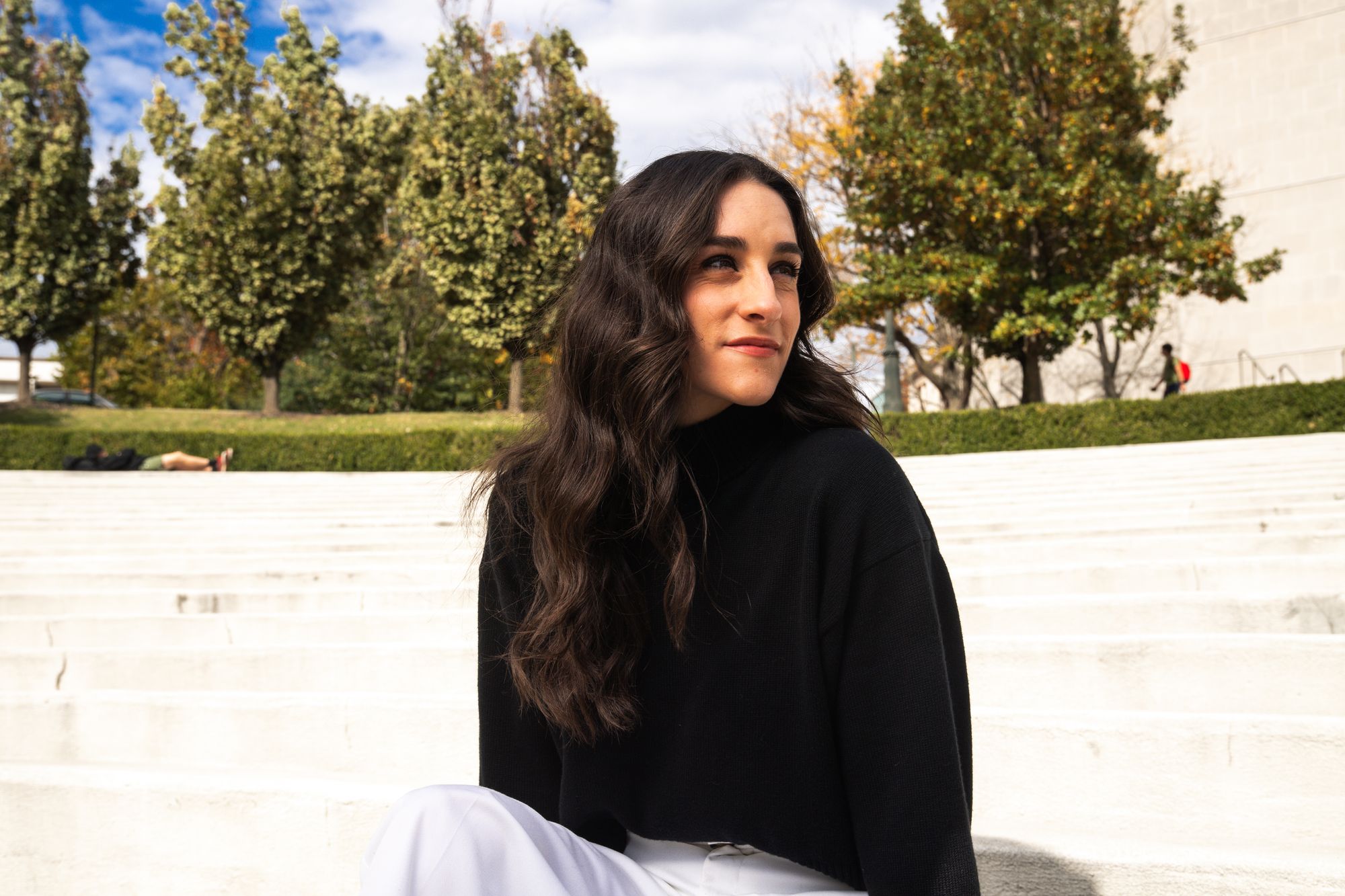
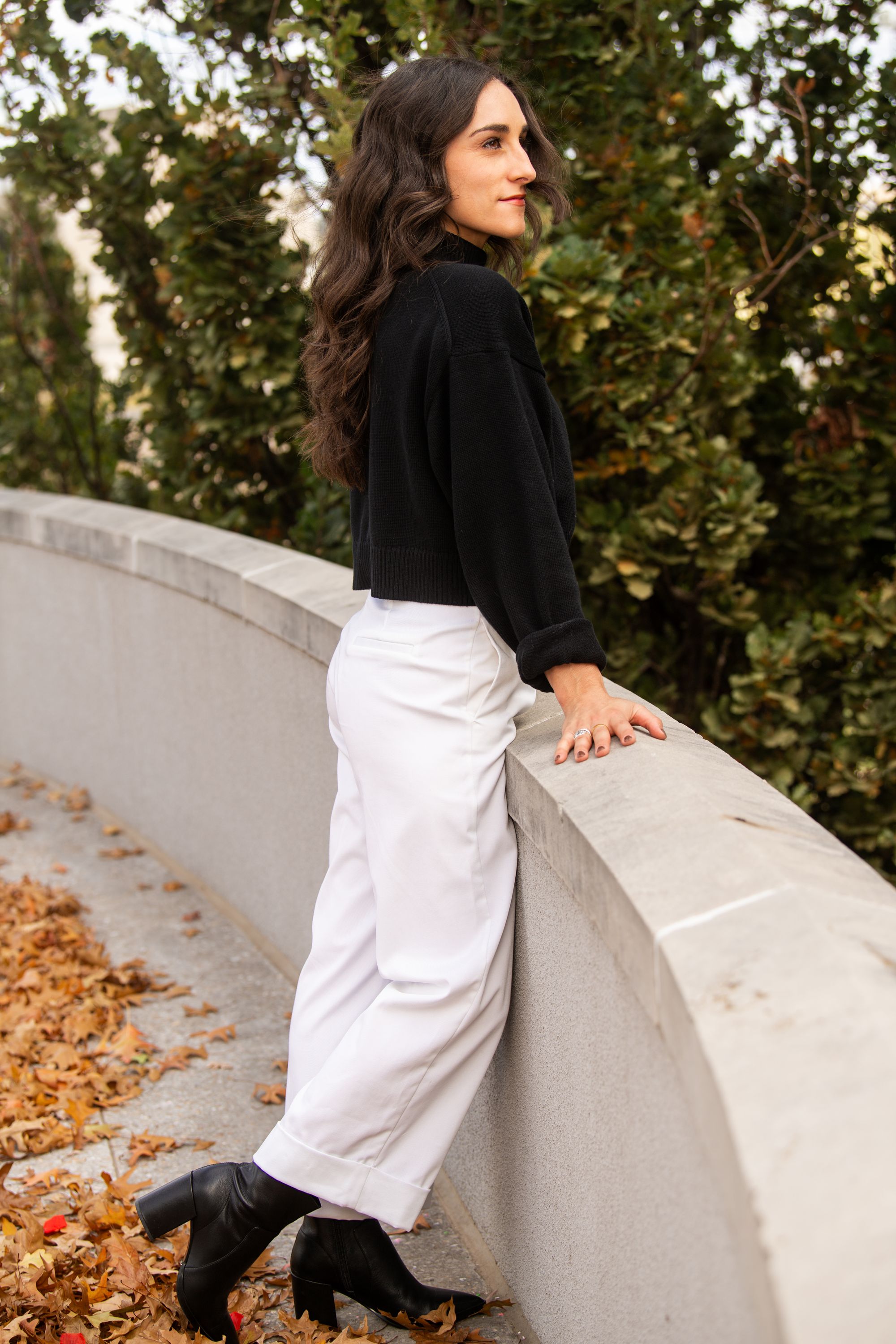
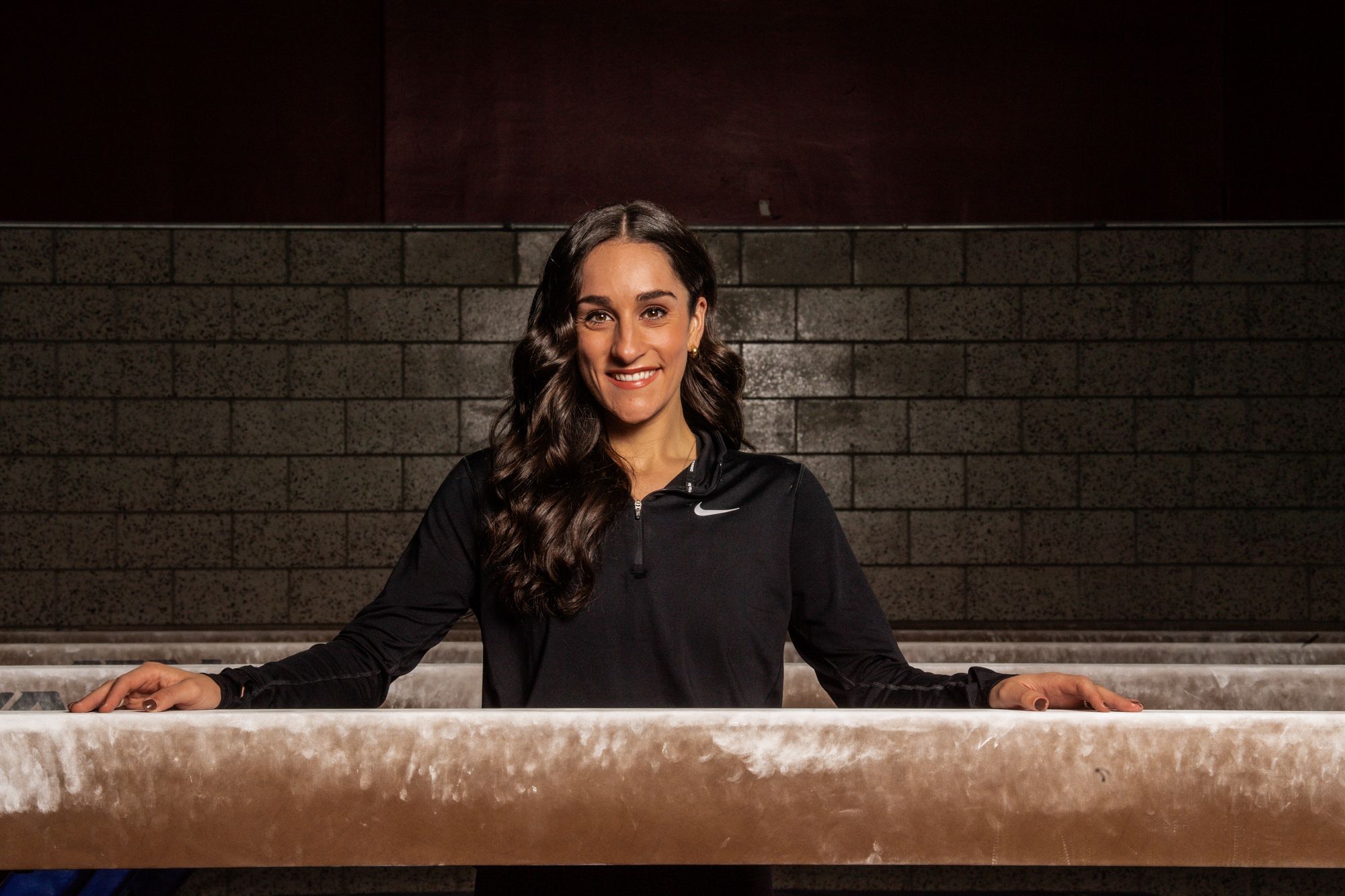
Long retired from the sport, Wieber is now in her mid-20s. In Fayetteville, she can relate with her student-athletes, and offer guidance from experience that is recent. [Meredith Mashburn photos].
“I know for a fact that if they’re not feeling good as a person — if their mental health’s not in a good place or they’re having issues in a relationship — their gymnastics is going to suffer. So I try to let them know I care about them more as a human.”
She sees her role as supporting student-athletes while pushing them. Listening while encouraging them to use their voices. Coaching them to be the best gymnasts they can be while recognizing that they’re so much more. Encouraging them to embrace challenging moments.
All these things are especially significant at this stage in their life, she says, since college is typically the tail end of gymnastics careers and they’ll soon be out in the world.
“Everything they’re encountering in the gym as an athletic challenge will parallel a challenge they’ll experience later in life. They’ll need to be able to draw on it.”
As for Jordyn, coaching brings new dimensions of joy and purpose to the sport she’s loved since those days vaulting over the family couch.
“It’s such an awesome job. The gymnastics is fun, and winning is awesome, and striving for greatness in gymnastics is great, but I love the opportunity to work with young women and create an environment and program that is healthy.”